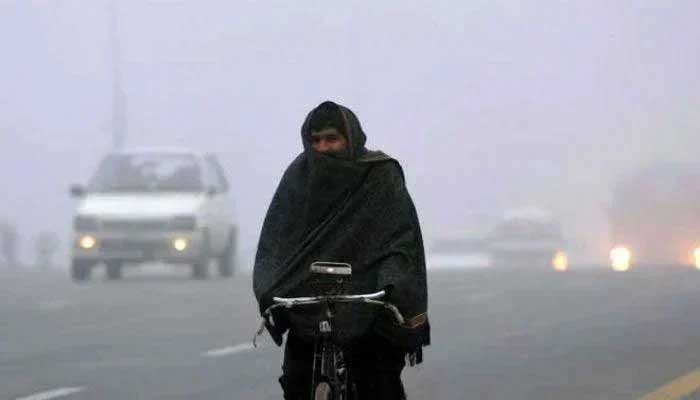Cold grips Karachi, parts of Balochistan
PMD records port city's minimum temperature at 12.7°C; mercury drops below zero in Quetta, Mastung and Kalat
KARACHI, QUETTA: The temperature in Karachi and various parts of Balochistan has shown a notable change as we enter the second week of December.
The mercury, according to the Pakistan Meteorological Department (PMD), dropped by two degrees Celsius in Karachi compared to the previous two days.
The minimum temperature in the capital city of Sindh was recorded at 12.7°C over the past 24 hours and is currently at 13°C.
With northeasterly winds blowing at a speed of seven kilometres per hour, the city's temperature is expected to reach a maximum of 29°C, added the PMD.
Meanwhile, winter has also arrived in Balochistan with the temperature in the provincial capital Quetta recorded at -2°C.
Additionally, in Kalat and Mastung, the mercury went down as low as -7°C and -3°C, respectively.
Furthermore, the province's northern and central areas are also experiencing severe cold with water freezing in several localities.
The adverse weather conditions coupled with unannounced gas and electricity outages are affecting the daily lives of the residents.
The weather changes come after the Met Office, on Saturday, warned of a "mild cold wave" in Sindh with a forecast of night-time temperatures between 7-9°C.
On Friday, the weatherman predicted further intensification of the ongoing cold wave in the country under the effect of forthcoming rain and snowfall.
-
Security forces gun down 30 terrorists in multiple IBOs in KP: ISPR
-
MQM-P calls for new province in Sindh
-
US report validates Pakistan military edge over India: PM
-
Banned TTP poses serious threat to Pakistan security: UNSC panel
-
CM Afridi clarifies remarks on by-poll after ECP requests army deployment
-
Dubai sees 3.2m Pakistani passengers in 2025 as airport sets new milestone
-
Security forces kill 23 Indian proxy terrorists in KP's Kurram
-
Pakistan to construct island to boost oil exploration: report












